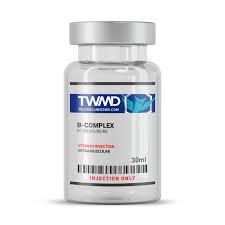Daily Recommended Amount Of Vitamin B12
Ever wondered how much Vitamin B12 you actually need each day? The recommended daily amount, or RDA, of B12 can vary depending on your age and specific needs. Furthermore This blog will explore the Daily Recommended Amount of Vitamin B12 and help you determine the right dosage for you.
Visit Official Website: TeleWellnessmd
Why is Vitamin B12 Important?
Vitamin B12 also known as cobalamin is an essential nutrient that plays a crucial role in many bodily functions. Moreover Here’s a quick rundown of its importance:
- Red Blood Cell Formation: B12 is vital for the production of healthy red blood cells, which carry oxygen throughout the body. A deficiency can lead to anemia.
- Nervous System Function: B12 supports a healthy nervous system, promoting proper nerve function and preventing nerve damage.
- DNA Synthesis: B12 is involved in the production of DNA, the genetic blueprint for our cells.
- Energy Production: B12 contributes to energy production by aiding in the breakdown of carbohydrates and fats.
How Much B12 Do You Need Each Day?
The recommended daily amount of Vitamin B12 varies depending on your age group:
- Adults (14-50 years old): 2.4 mcg (micrograms) per day
- Adults (51+ years old): 2.6 mcg per day
- Pregnant Women: 2.6 mcg per day
- Breastfeeding Women: 2.8 mcg per day
- Children (up to 13 years old): Varies depending on age, with the lowest recommendation being 0.9 mcg per day for infants aged 7-12 months.
Factors Affecting B12 Absorption
It’s important to note that simply consuming enough B12 doesn’t guarantee your body can absorb it effectively. Here are some factors that can affect B12 absorption:
- Diet: B12 is naturally found in animal products like meat, poultry, fish, and dairy. Moreover Strict vegetarians or vegans might need to consider B12 supplements to meet their daily needs.
- Age: As we age, our stomach acid production naturally decreases, which can hinder B12 absorption.
- Medical Conditions: Certain medical conditions, such as pernicious anemia or Moreover Crohn’s disease, can interfere with B12 absorption.
Symptoms of B12 Deficiency
If you’re not getting enough B12, you might experience some of these symptoms:
- Fatigue and weakness
- Shortness of breath
- Pale skin
- Tingling or numbness in hands and feet
- Dizziness
- Difficulty concentrating
- Memory problems
Consulting a Doctor
If you suspect a B12 deficiency, it’s crucial to consult your doctor. Furthermore They can conduct a blood test to diagnose the deficiency and determine the appropriate course of treatment.
B12 Supplements and Injections
- B12 Supplements: For individuals with mild deficiencies or those who might have difficulty absorbing B12 from food due to dietary restrictions or age-related changes, B12 supplements can be a convenient option. These supplements come in various forms, such as tablets, lozenges, and sprays.
- B12 Injections: In cases of severe B12 deficiency or for individuals whose bodies struggle to absorb B12 from supplements, B12 injections might be necessary. These injections deliver B12 directly into the bloodstream, bypassing the digestive system.
Remember
While the recommended daily amount of B12 provides a general guideline, individual needs can vary. Consulting a doctor to assess your specific situation and determine the right dosage for you is crucial.
By understanding the importance of Vitamin B12, the factors affecting its absorption, and the options available to address deficiencies, you can ensure your body receives this essential nutrient to function optimally.
Additional Tips
- Maintain a Balanced Diet: Prioritize a diet rich in animal products like meat, poultry, fish, and dairy to ensure a natural source of B12.
- Consider Fortified Foods: Some breakfast cereals, plant-based milks, and nutritional yeasts are fortified with B12, offering an alternative for vegetarians and vegans.
- Consult a Registered Dietitian: A registered dietitian can help you create a personalized dietary plan that meets your B12 needs and overall nutritional requirements.
By following these tips and consulting your doctor, you can make informed choices about your B12 intake and maintain optimal health.
